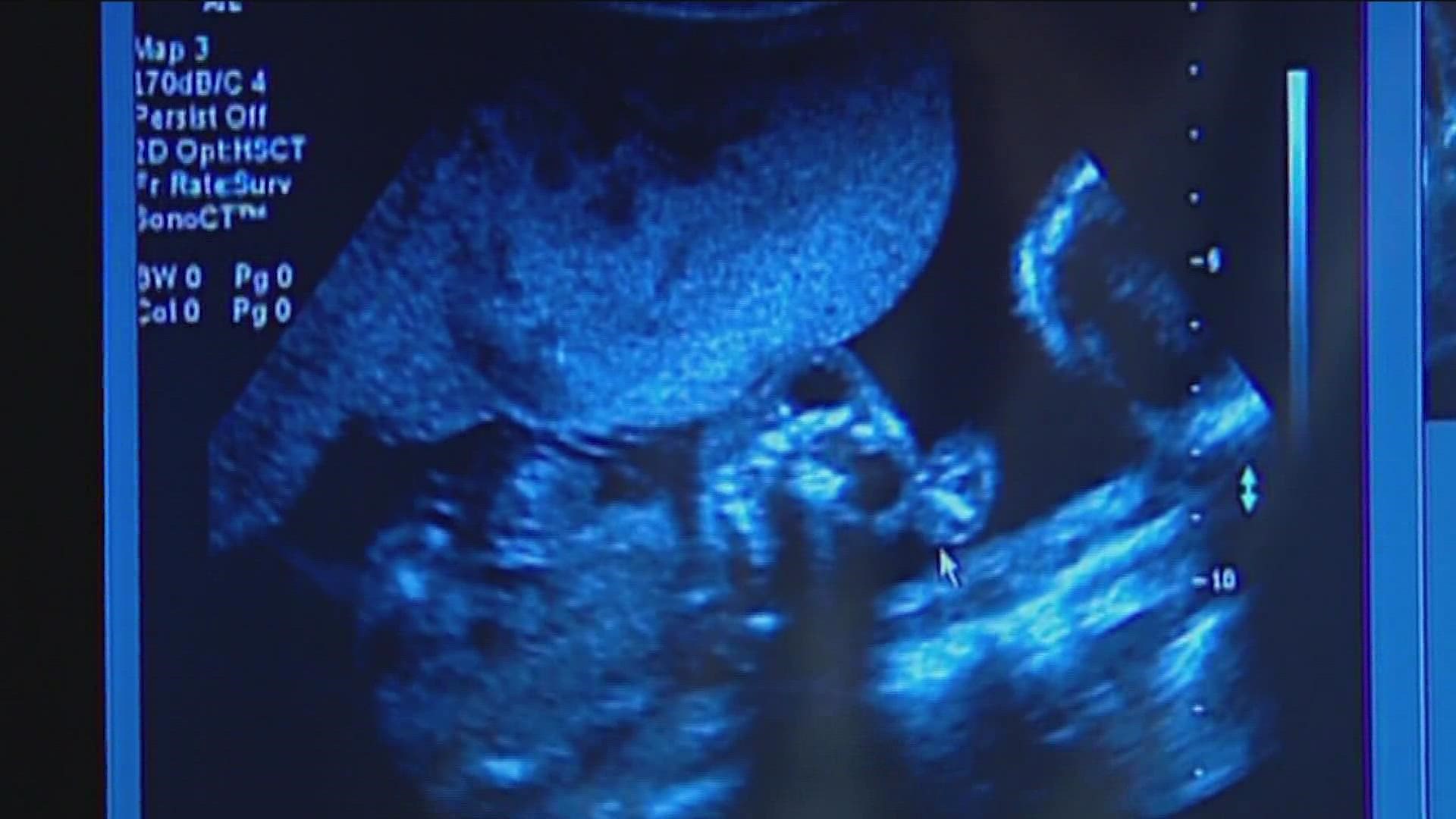ATLANTA — A Georgia lawmaker wants to hold the state financially responsible for unwanted pregnancies that can't be terminated under the Georgia's six-week abortion ban.
The Georgia Pro-Birth Accountability Act would have the state pay for everything from a pregnant person’s medical expenses to the child’s health insurance and secondary education.
It’s unlikely to pass the Republican-controlled state House and Senate, but Rep. Dar’shun Kendrick (D-Lithonia) told 11Alive that the bill starts an important conversation about the ban and its effects. Kendrick introduced the bill last week.
“This is an actual, serious bill, and I don’t understand why every conservative hasn’t ran to sign it,” said Kendrick. “If you claim to be pro-life and pro-family, I’m giving you exactly what you are asking for, which is to support our families (and) support our unborn children.”
What the bill would do
Georgia’s abortion law effectively bans the procedure once fetal cardiac activity is detected — usually about six weeks into the pregnancy. There are some exceptions.
Abortions can be performed up to 20 weeks if the pregnancy is the result of rape and incest. The procedure can also be performed if a physician determines that a medical emergency exists or that the pregnancy is “medically futile.”
Under Kendrick’s proposed legislation, “pregnant women” would be compensated for a variety of costs associated with pregnancy and just after the birth, including “reasonable living, legal, medical, psychological and psychiatric expenses.”
The state would be responsible for any related expenses if death or disability results from the pregnancy. The bill also requires compensation for loss of future earnings if the woman dies.
The mother would be eligible for any child-related federal or state income tax credits as well as public assistance programs like the Special Supplemental Nutrition Program for Women, Infants and Children (WIC). A specially-trained, state-provided nurse would make home visits from early pregnancy through the child's second birthday.
Beyond early childhood, the state would cover health, dental and vision insurance for the child until they reach the age of 18. The state would also be responsible for child support payments to an “unmarried woman” if the father is unknown or unable to support.
In addition, the state would fund a savings trust to support the child’s higher education costs.
To receive compensation, the woman would be required to file an affidavit with the Georgia Department of Human Services. The state human services department would then assign a case manager to assist the woman, and the Georgia legislature would establish a new fund to support the department’s efforts.
Kendrick told 11Alive that she adapted the legislation from a similar proposal by South Carolina State Senator Mia McLeod, a Democrat. Unlike McLeod’s bill, a lawsuit would not have to be filed to receive compensation in cases of death and miscarriage in Georgia.
This isn’t the first time Kendrick’s taken aim at the state’s abortion law.
In 2019, Kendrick proposed a "testicular bill of rights" that would have made it an "aggravated assault" for a man to have sex without a condom.
Kendrick said that 2019 proposal was “symbolic” while her 2022 legislation is “serious.”
“The talking points are always about Georgia being pro-life and pro-family. But you can’t be pro-life and pro-family if you don’t back that up with state dollars,” said Kendrick. “Since we have a surplus, let’s put those resources behind, truly being a pro-life and pro-family state.”
How much would it cost the state?
The Georgia Department of Audits and Accounts was unable to provide a definitive estimate on how much the legislation could cost the state.
The agency cited a number of unknown factors, including the number of women and children who would qualify for benefits, the department said.
According to the Georgia Department of Public Health, there were 34,988 abortions in the 2021 fiscal year. In 2019, 40% of abortions occurred within the first six weeks and would still be allowed under state law. However, pregnant persons could leave the state to receive abortion care.
“In addition to the difficulty estimating the number of individuals obtaining benefits, we are unable to determine the per individual costs of some benefits,” the report reads.
Georgia’s abortion law was signed by Gov. Brian Kemp in 2019, eventually taking effect after the U.S. Supreme Court overturned Roe V. Wade. Pro-choice groups challenged the state law, and a Fulton County Superior Court judge ruled it was unconstitutional.
The state appealed the ruling, and the Georgia Supreme Court ruled the ban would remain in effect as it considers the case. The case could be heard in March.
When asked about Kendrick’s bill, House Majority Leader Chuck Efstration (R-Dacula) told 11Alive that state lawmakers are waiting to see how the state supreme court rules on the abortion ban.
“Any legislation considering the fiscal impact to taxpayers requires significant vetting, including an anticipation of what that cost would be,” said Efstration.

